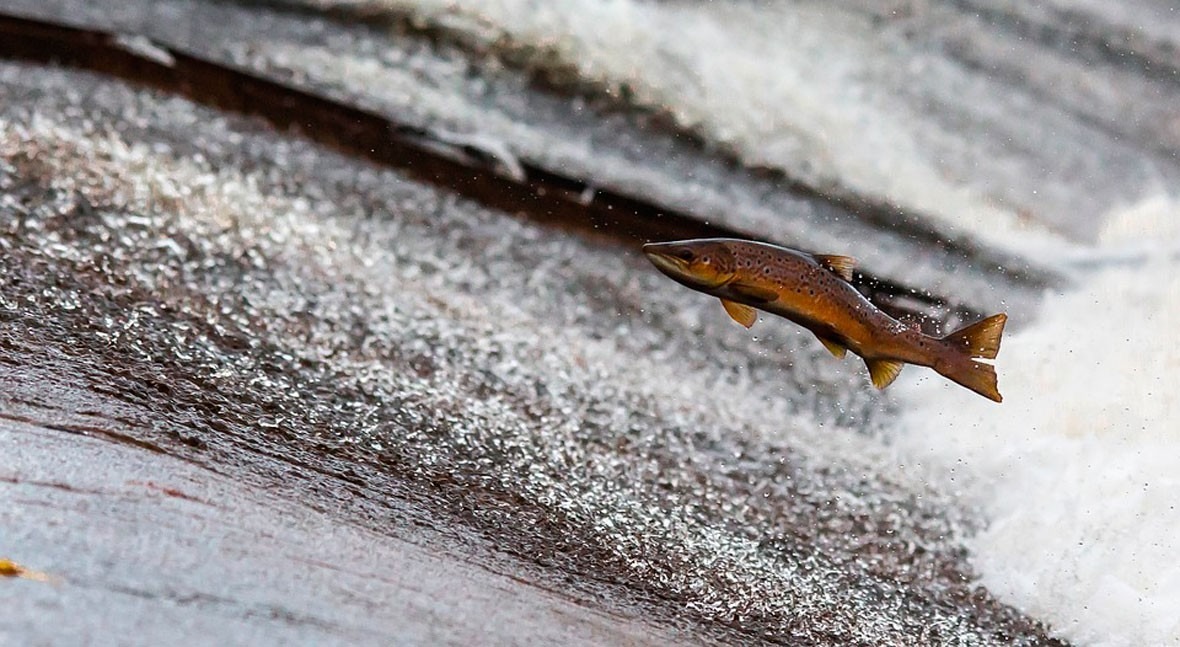Established in 1970, Earth Day or also called International Mother Earth Day is annually celebrated on April 22. Its promoter, U.S. Senator Gaylord Nelson, set up this day to create a common awareness of the problems of overpopulation, pollution, biodiversity conservation and other environmental concerns to protect the Earth... and so it has continued.
In this way, the United Nations General Assembly celebrates Earth Day with the aim of achieving a fair balance between the economic, social and environmental needs of present and future generations, and to promote harmony with nature and the Earth.
83 percent of freshwater populations have plummeted since 1970
Protect our species
The 2019 theme for Earth Day is to protect threatened and endangered species. As Rachel Carson, American marine biologist, said, "In nature, nothing exists alone," and the close relationship between nature and species (including humans) means that any disturbance endangers the existing equilibrium. In this way, global destruction and the rapid reduction of plant and wildlife populations are directly related to humans and causes driven by our activity.
Human civilization has had a negative impact on most living things, producing a global decline in species and leaving more than alarming figures:
- Scientists at NCBI estimate that current extinction rates are 1,000 times higher than natural background rates of extinction and future rates are likely to be 10,000 times higher.
- Habitat destruction, exploitation and climate change are the main cause of the loss of half of the world's wild animal population (Nature).
- According to Oxford Academic, more than 650,000 marine mammals are caught or seriously injured by fishing gear each year in the whole world.
- Humanity has wiped out over 50 percent of animal populations since 1970, according to a report from WWF.
- By 1995, at least 83% of Earth’s land surface had been directly affected by humans, and as 2005, humans had built so many dams that nearly six times as much water was held in storage as flowed freely in rivers (Smithsonian National Museum of Natural History)
But there are other disturbing figures. If we focus on freshwater, more than 126,000 species of fish, reptiles, molluscs, plants, insects and mammals of our planet inhabit rivers, lakes and wetlands (National Gaeographic). These have been seriously threatened by human action. According to the latest WWF’s Living Planet Index, 83 percent of freshwater populations have plummeted since 1970, being the largest extinction of vertebrates in the world. This Index, which measures biodiversity levels based on 16,704 populations of 4,005 vertebrate species worldwide, shows a general decrease of 50 percent in the last two generations. The main factors of this loss being overexploitation and agriculture (both as a result of the growth in human consumption).
Despite representing only 1% of the Earth's surface, freshwater ecosystems constitute one of the most living terrestrial habitats
The role of water on Earth Day
Earth Day is also an opportunity to remember that the planet and its ecosystems give us life and sustenance, in which water plays a fundamental role. In fact, despite representing only 1% of the Earth's surface, freshwater ecosystems constitute one of the most living terrestrial habitats, hosting almost one in ten species on the planet. But not only that, they are also a source of life for all human beings and have a high economic value.
However, freshwater ecosystems are also the most threatened and are declining by leaps and bounds due to habitat fragmentation, overexploitation, invasive species, pollution or climate change. According to the aforementioned WWF report, on a global scale, it is estimated that there has been a decline in the extent of wetlands of more than 50% since 1900. In addition, dams and other infrastructure are increasingly disconnecting rivers, and reservoirs are altering flow regimes and are estimated to be trapping more than 25% of the total sediment load previously reaching the ocean.
In this regard, a recent global satellite study of the Earth's freshwater distribution suggests that a major global hydrological change is occurring due to variations in climate patterns. This may have resulted in populations of freshwater species declining by about 81% over the past 40 years, more than double the rates observed for terrestrial and oceanic species. While it is estimated that globally 80% of wastewater is discharged directly into untreated water bodies, causing serious impacts on ecosystems and human health, according to the UN, freshwater protection shows signs of progress, thanks to the historic steps taken by the United Nations Environment Assembly to protect and restore water-related ecosystems.
April 22: a day to remember every day
It is impossible to celebrate Earth Day without looking back on the actions of previous years, of which one draws special attention to the twentieth anniversary of Earth Day in 1990, where in France a human chain formed around the Loire River (reaching around 800km in length) to honor one of Europe’s last clean rivers.
Earth Day is not only an important day for the environment and for those of us who, in some way, are involved in its care and awareness; it must also be a critical day for all human beings. We must understand once and for all that caring for the Earth is a collective responsibility and we must foster this harmony with nature and Mother Earth.








